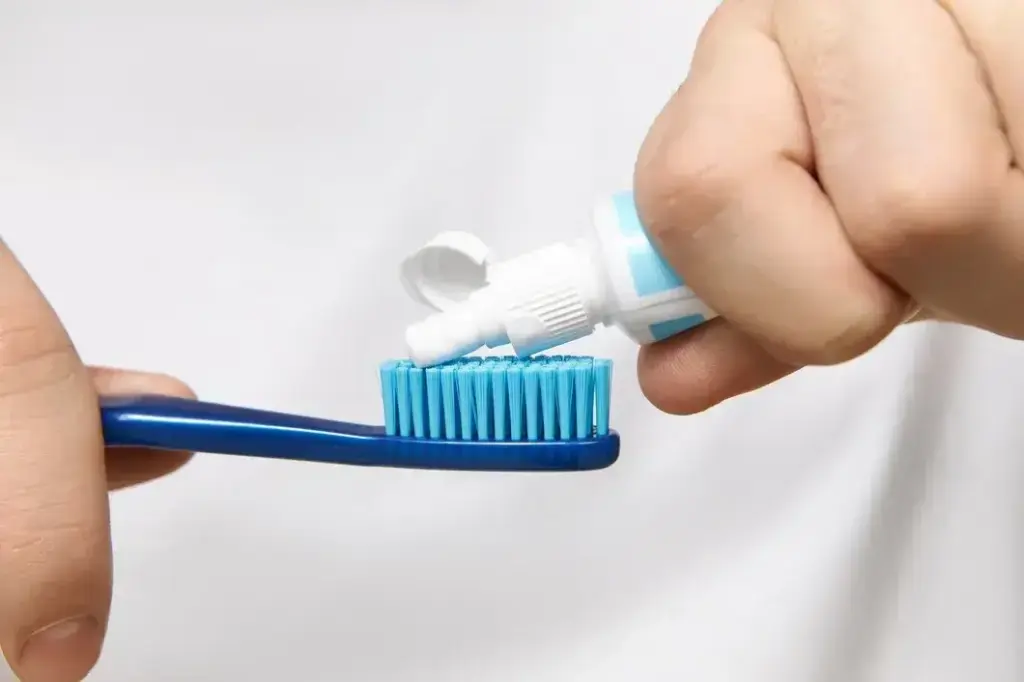Most people use fluoride toothpaste without a second thought. It's in stores, dentist offices, and ads promising strong teeth. But have ever wondered if it's really safe? Many Now Question Why Avoid Fluoride in Toothpaste and Whether it does more harm than good.
Fluoride helps fight cavities, but there are risks too. SWALLIWING Too Much Over Time May Harm Teeth and Bones. Some worry about its effect on brain health. So, should you stop using fluoride toothpaste? Let's break it down in this Comprehensive Article.
Key takeaways
-
Fluoride is common but controversial. IT Helps Prevent Decay but may cause long-term health issues.
-
Too much fluoride can harm teeth and bones. It may also affect the brain, especially in Children.
-
Safer options exist. Fluoride-free toothpaste and natural remineralizing agents are gaining popularity.
What is fluoride, and why is it in toothpaste?
Fluoride is a mineral found in Soil, Water, and Some Foods. IT Helps Harden Tooth Enamel, Slowing Decay. That's why it's in toothpaste and drinking water. The idea is that small daily doses protect teeth.
Most fluoride toothpaste in the US has a concentration of 1,000–1,100 ppmWhile this Amount is Considered Safe, The Problem Starts when Exposure Builds Up Over Time.
Supporters say fluoride is essential. Critics argue we get too much. So, should you keep using it?
Why avoid fluoride in toothpaste: undersrstanding hidden risks
1. Too much can damage your teeth
One of Fluoride's biggest risks is dental fluorosis. This Haappens when fluoride disrupts tooth enamel formation. It leaders to white spots, streaks, or figted teeth.
Children are most at risk sense they often swallow toothpaste while learning to brush. The damage is permanent. Even mild cases change the look of teeth.
2. It may weaken bones over time
Fluoride doesn't just affected teeth. Studies Link high intake to skeletal fluorosis, which makes bones brittle. The risk is higher for people drinking well water with high fluoride levels.
Long-term exposure could lead to:
Fluoride builds up in bones over time. Unlike Vitamins or Mineals the Body Needs, Fluoride has no Known Function Beyond Dental Health.
3. Potential Effects on the brain
Some Studies Sugged Fluoride May Impact Brain Development. This is a concert for children, as their brains are still growing. Research has linked high fluoride levels in water to:
While The Debate Continues, Many Parents Choose Fluoride-Free Toothpaste as a Precaity.
Fluoride vs. Other toothpaste ingredients
|
Ingredient
|
Purpose
|
Safe for long-term use?
|
|
Fluoride
|
Strengthens Enamel, Prevents Decay
|
Linked to dental and skeletal issues
|
|
Hydroxyapatite
|
Helps Rebuild Enamel
|
Yes, Natural Alternative
|
|
Xylitol
|
Fights Bacteria, Reduces Cavities
|
Yes, found in some foods
|
|
Calcium phosphate
|
Restores Lost Minerals in Teeth
|
Yes, used in dental treatments
|
|
Charcoal
|
Claims to Whiten Teeth, Absorbs Toxins
|
Safe but abrasive if overured
|
If you're wondering why avoid fluoride in toothpaste, hydroxyapatite, xylitol, and calcium phosphate offer fluoride-fioride-free yous to strengthen teeth with reliefs.
Fluoride-free alternatives: do they work?
Yes! Many people switch to fluoride-free options and see great results. These alternatives protect teeth without the risks of fluoride building.
1. Hydroxyapatite (Hap) toothpaste
Hydroxyapatite is the same material found in bones and teeth. It Helps Rebuild Enamel and Works as Well as Fluoride for Cavity Prevention.
2. Xylitol-based toothpaste
Xylitol, A Natural Sugar Alcohol, Reduces Bacteria in the Mouth. It keeps cavities from forming and is safe for kids.
3. Calcium and phosphate remineralization
Some toothpaste brands use calcium and phosphate to help teeth rebuild lost menerals. These ingredients support enamel strength without fluoride exposure.
How to Reduce Fluoride Exposure
Try cutting back if you're not ready to stop using fluoride complete. Here's how:
-
Use a pea-sized Amount for kids. Supervise brushing to avoid swallowing.
-
Check your water source. Many sites add fluoride to drinking water. If yours does, a fluoride-on toothpaste may be better.
-
Filter your water. A Reverse Osmosis Filter Can Remove Fluoride from Tap Water.
-
Try fluoride-free toothpaste at night. If you're heesitant to go complete fluoride-free, use it once a day instead.
Some dentists still recommend fluoride, but you have a choice. If you're asking why avoid fluoride in toothpaste, Know that alternatives exist.
Final Thoughts
Fluoride can protect teeth, but it come with risks-comforted for kids and long-term users. The potential for enamel damage, bone issues, and possible brain effects makes many people think twice about why avoid fluoride in toothpaste. If you want to Reduce Fluoride Exposure, Consider Switching to Fluoride-Free toothpaste with Safer Englands Like Hydroxyapatite, Xylitol, Or Calcium Phosphate. If you're unsure, consult a dentist who undertands bot sides of the debate. And do't forget to share this with family and friends who might be retaining their oral care routine.
Read also: How to Remineralize Teeth Naturally
Frequently Asked Questions
Does Fluoride-free toothpaste prevent Cavities?
Yes, if you brush well. Hydroxyapatite and xylitol-based toothpastes help fight decay just like fluoride.
Can adults get dental fluorosis?
No, fluorosis only happy However, adults exposed to high fluoride levels may develop bone issues.
Is it safe to swallow fluoride toothpaste?
No. SWALLIWING LARGE AMONTS Over Time May Cause Stomach Issues, tooth discolation, or bone problems.
Should Kids use fluoride toothpaste?
Most dentists say yes, but only in Tiny Amounts. Parents should supervise to make sure they don't swallow it.
Does Fluoride Affect Thyroid Health?
Some Studies Sugged High Fluoride Exposure May Lower Thyroid Function. This Cold Lead to Weight Gain, Fatigue, Or Hormone Imbalances
How can i remove fluoride from drinking water?
A Reverse Osmosis Filter is the most effective way to reduce fluoride in tap water.
What are the best fluoride-free toothpaste brands?
Look for options with hydroxyapatite, xylitol, or calcium phosphate. Many Natural Brands Now Offer Fluoride-Free choices that Still Protect Teeth.



